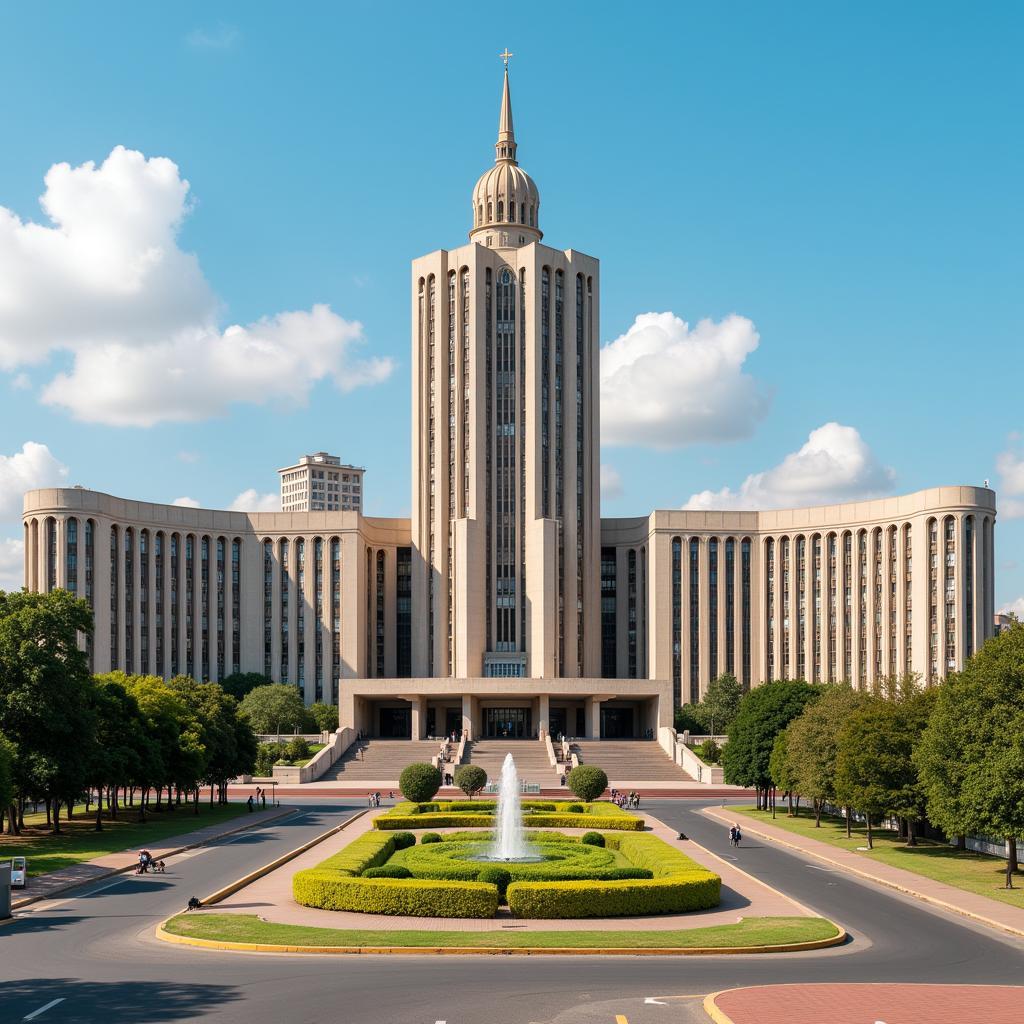African Development Bank: A GKToday Deep Dive
The African Development Bank (AfDB) plays a crucial role in fostering sustainable economic growth and social progress across the African continent. This article provides a comprehensive overview of the AfDB, covering its history, functions, and impact, offering valuable insights for anyone interested in African Development Bank Gktoday.
Understanding the African Development Bank’s Mission
The AfDB’s core mission is to spur sustainable economic development and social progress in its regional member countries, contributing to poverty reduction. It achieves this through mobilizing and allocating resources for investment in projects and programs that promote development. This includes providing technical assistance and policy advice to African governments. The bank also promotes regional integration, which is crucial for fostering larger markets and enhancing trade.
Key Functions of the AfDB
The AfDB performs a variety of functions vital to African development. It provides loans, grants, and equity investments to both public and private sector projects. These projects range from infrastructure development (roads, power, water) to agriculture, education, and healthcare. The bank also plays a crucial role in promoting good governance and capacity building within African nations. Furthermore, the AfDB acts as a knowledge hub, conducting research and disseminating information on development best practices.
The History and Evolution of the AfDB
Established in 1964, the AfDB has undergone significant evolution throughout its history. Initially, its membership was limited to independent African countries. However, in 1982, it expanded its membership to include non-African countries, broadening its resource base and global partnerships. This expansion allowed for increased capital inflow and strengthened the bank’s capacity to address the continent’s evolving development challenges. Over the decades, the AfDB has adapted its strategies and priorities to address emerging issues such as climate change, gender equality, and regional integration.
Navigating Challenges and Achieving Milestones
Despite facing numerous challenges, the AfDB has achieved significant milestones in its pursuit of African development. It has played a key role in financing major infrastructure projects, boosting agricultural productivity, and promoting private sector development. The bank has also been instrumental in supporting post-conflict reconstruction and promoting sustainable development initiatives across the continent.
The AfDB’s Impact on African Economies
The AfDB’s interventions have had a profound impact on African economies. By investing in critical infrastructure, the bank has facilitated trade, improved access to markets, and enhanced regional integration. Its support for the private sector has spurred entrepreneurship, created jobs, and fostered economic diversification. The bank’s focus on sustainable development has also contributed to environmental protection and climate change mitigation efforts across the continent.
The Future of the AfDB: Driving Sustainable Growth
The AfDB continues to play a pivotal role in shaping the future of Africa. Its current strategic priorities include promoting inclusive growth, strengthening governance, and fostering regional integration. The bank is also actively engaged in promoting climate-resilient development and leveraging technology to drive innovation and accelerate progress towards achieving the Sustainable Development Goals in Africa.
“The AfDB is not just a bank; it’s a partner in Africa’s transformation,” says Dr. Adebayo Ogunlesi, a renowned development economist. “Its commitment to sustainable and inclusive growth is essential for unlocking the continent’s vast potential.”
Conclusion
The African Development Bank (AfDB) stands as a vital institution in the pursuit of sustainable development and economic progress across Africa. Its strategic interventions, ranging from infrastructure development to private sector support and capacity building, are crucial for driving positive change and achieving the continent’s development aspirations. Through continued investment and partnerships, the African development bank gktoday remains a beacon of hope for a prosperous and resilient Africa.
FAQ
- What is the main goal of the AfDB? (To spur sustainable economic development and social progress in its regional member countries)
- When was the AfDB established? (1964)
- Who are the members of the AfDB? (African and non-African countries)
- What types of financing does the AfDB provide? (Loans, grants, and equity investments)
- What are some of the AfDB’s key focus areas? (Infrastructure, agriculture, education, healthcare, governance, and regional integration)
- How does the AfDB contribute to sustainable development? (By promoting climate-resilient development and supporting initiatives aligned with the Sustainable Development Goals)
- What is the role of the AfDB in promoting private sector development? (Providing financing, technical assistance, and creating an enabling environment for businesses to thrive)
Need support? Contact us 24/7: Phone: +255768904061, Email: kaka.mag@gmail.com, Address: Mbarali DC Mawindi, Kangaga, Tanzania.


